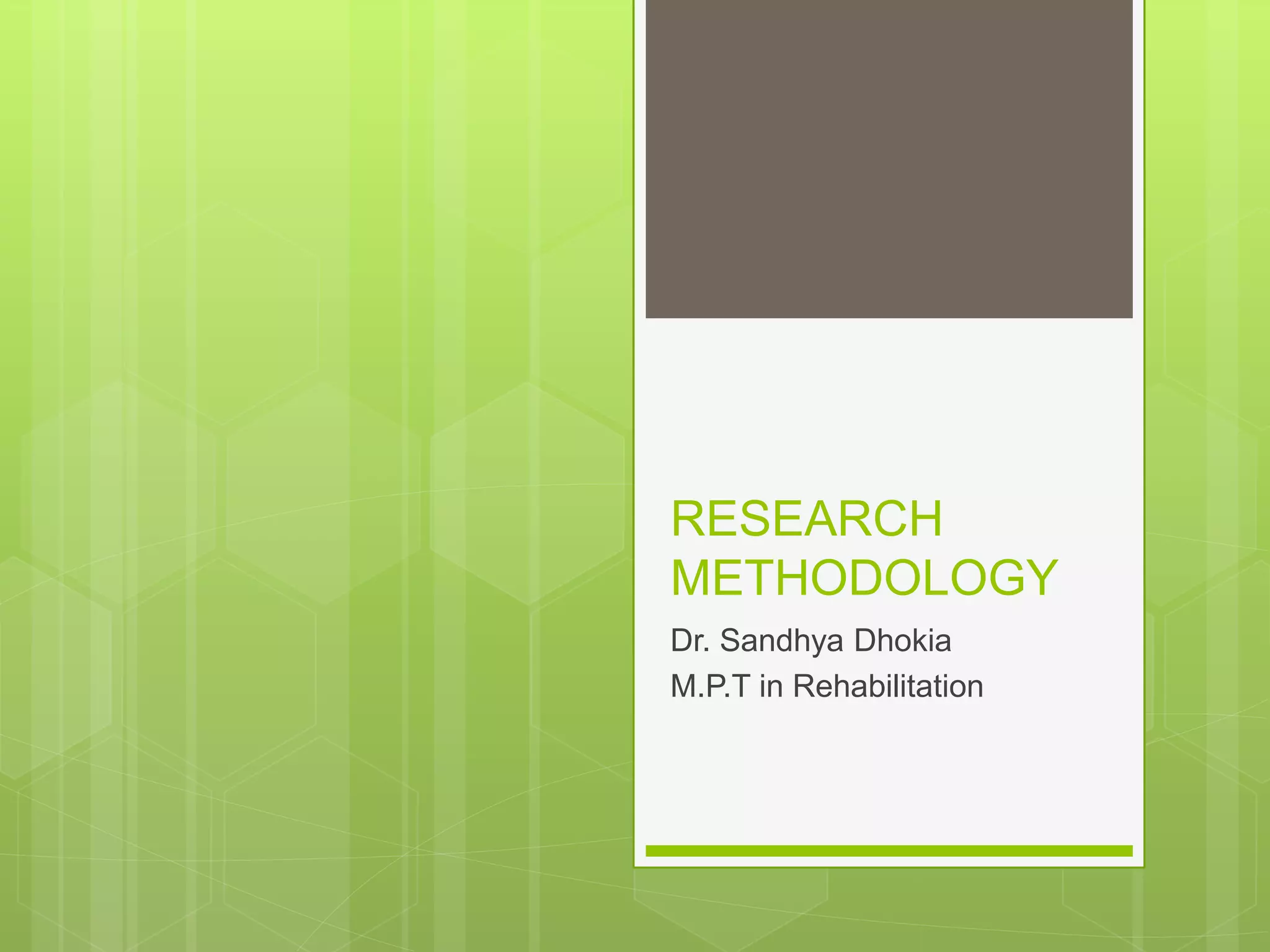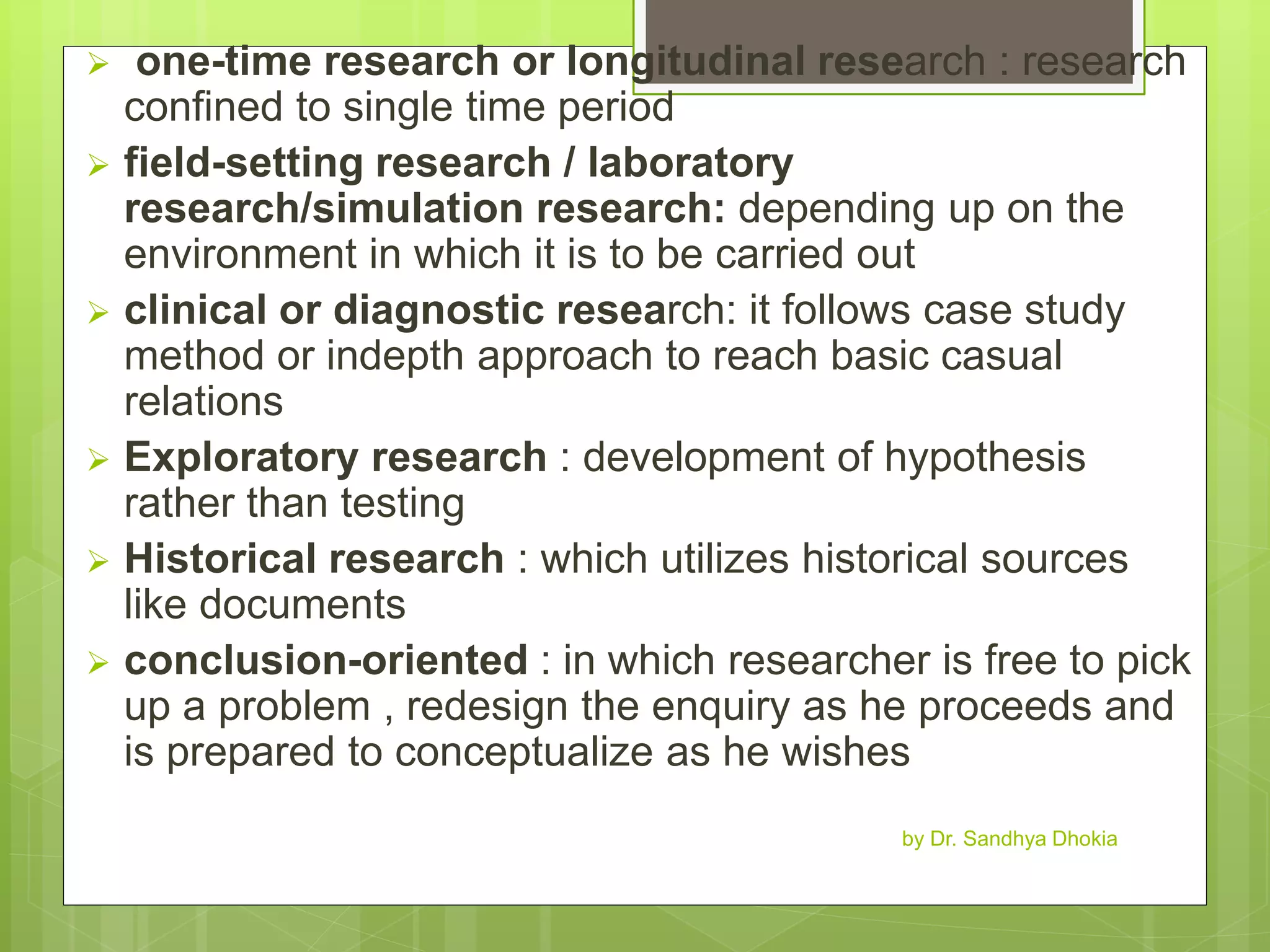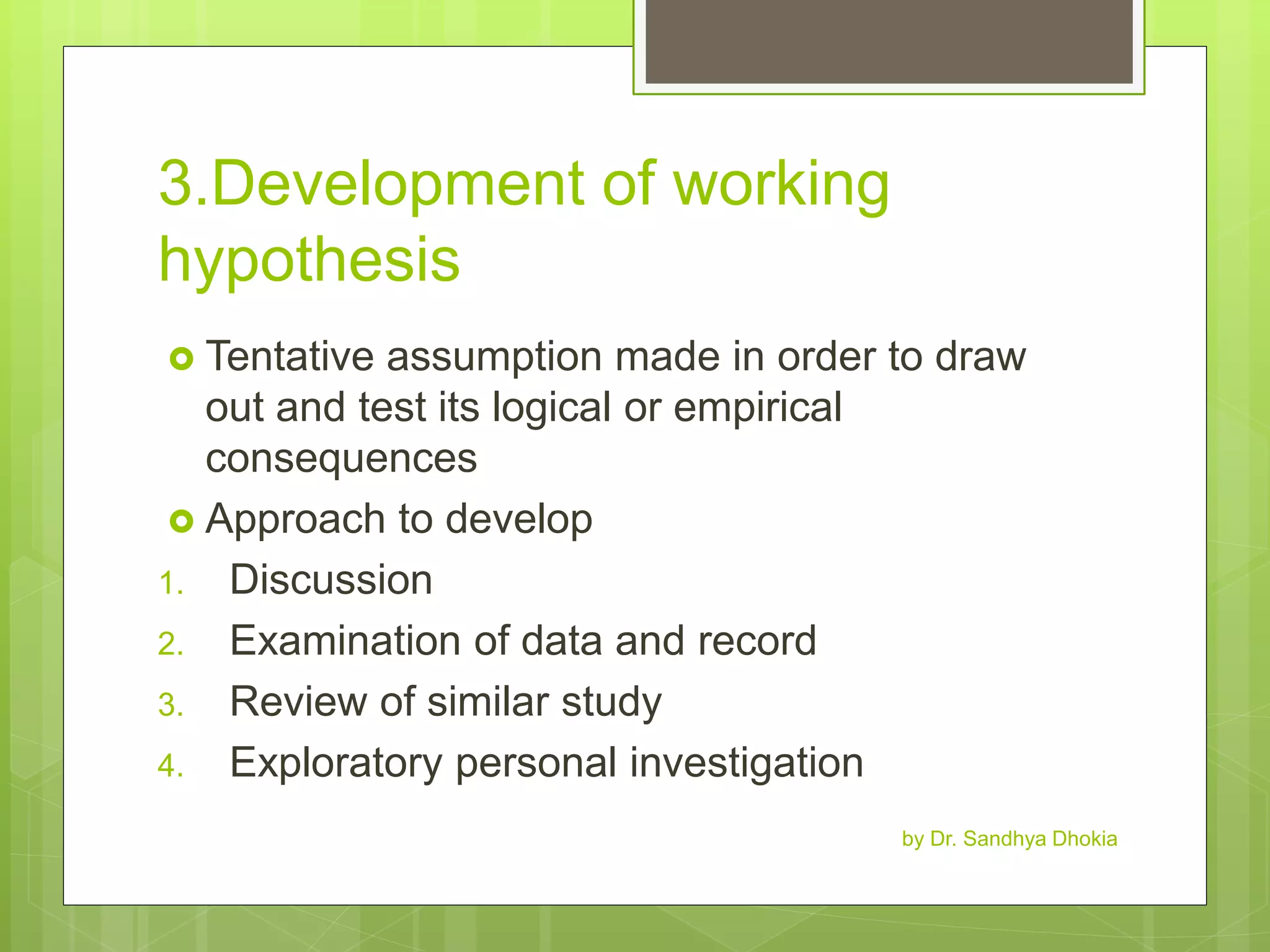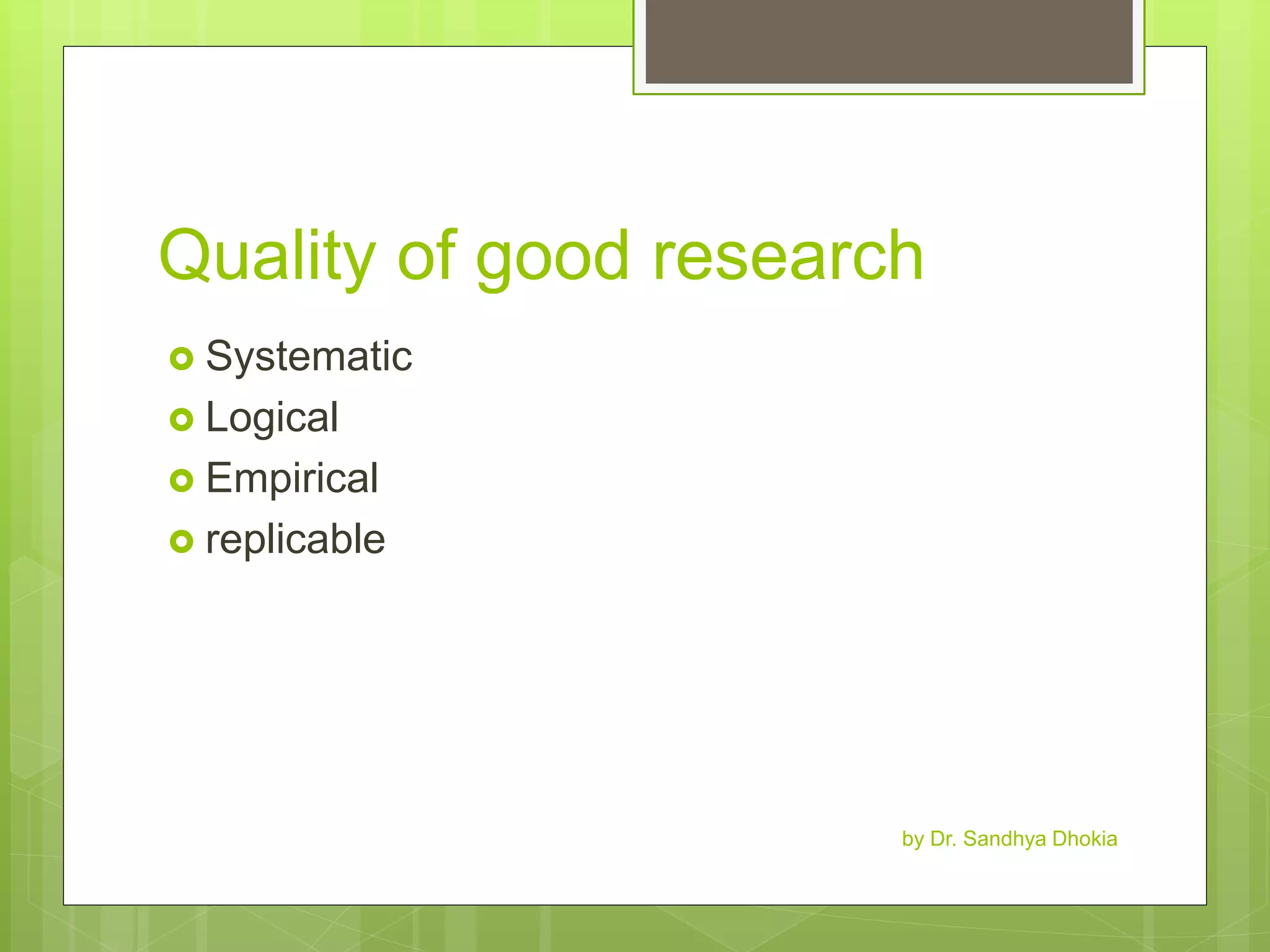Dr. Sandhya Dhokia provides an overview of research methodology. She defines research as a careful investigation to discover new facts through scientific procedures. The objectives of research can include gaining familiarity with a phenomenon, accurately portraying characteristics of a situation, determining how frequently something occurs, and testing hypotheses. Motivations for research include obtaining degrees, solving problems, intellectual enjoyment, and helping society. The document also outlines different types of research approaches and methods.





























